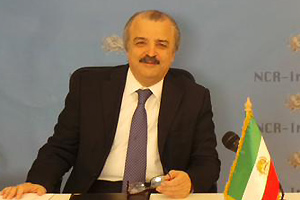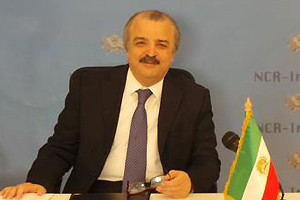
Townhall
The ruthless killing of innocent people in Paris was a crime against humanity by any standard. It poses the same question that the world community faced after September 11, 2001: What is the proper response to terrorism carried out in the name of Islam?
The right answer would effectively end the growth of violent Islamic extremism. The wrong answer would lead to much greater threats than those created in the post-9/11 world.
In my 1993 book, Islamic Fundamentalism: The New Global Threat, I argued that although the theoretical roots of this evil phenomenon date back to the first decades of Islam, it was only after the establishment of theocracy in Iran that Islamic fundamentalism turned into the serious global threat that it is today. While the differences between Shiite and Sunni fundamentalists are minimal, they have a common major objective: establishing an “Islamic rule” for the enforcement of Sharia law.
I also argued in the book that only democratic Islam can pose the ultimate challenge to fundamentalist interpretations.
At the time, my book was cast as exaggerations by an opponent of the Iranian regime. But, after the 9/11 terrorist attacks, the world saw the brutality of fundamentalism firsthand. Yet even then the US made a major strategic blunder by invading Iraq.
As subsequent mistakes were made, the heart of fundamentalism in Tehran took advantage while projecting power further into the Middle East, thus laying the groundwork for the emergence and spread of ISIS as the Sunni counterpart to Iran’s Shiite fundamentalism.
Fourteen years on, Europe is dealing with what could be its own 9/11. And Tehran is poised to seize the opportunity once again. Iranian officials and media outlets are already blaming French policies for the attack. They want to convince Paris to support the Iran-allied Syrian president under the pretext of fighting terrorism.
This is exactly what the regime did after September 11, 2001 when Iranian agents and affiliates like Ahmad Chalabi helped to manipulate the US into the war with Iraq. Now, some in the West are willing to take the bait again.
Both Iran and ISIS stand to benefit.
The real solution is exactly the opposite. It includes steadfast support for the ouster of Bashar al-Assad in Syria. After all, Assad’s brutality and Iran’s sectarianism are major contributors to the social landscape that has allowed ISIS to attract more Sunnis to its extremist ideology. If the conditions were different, ISIS ideology and tactics would quickly collapse.
Last January, French President Francois Hollande said if the US had not backtracked at the 11th hour in August 2013 from punishing Assad for his chemical bombardments, the Charlie Hebdo terrorist attack would likely have never occurred. Perhaps the November 13th tragedy would not have happened either.
There is no doubt that the Obama administration’s retreat was tied to its dealings with the Iranian regime, Assad’s main patron.
The US should concentrate its efforts on the ouster of Assad instead of following the current policy of looking in all the wrong places for help against threats like ISIS. Combatting ISIS will be futile without toppling Assad.
The Iranian regime’s Supreme Leader Ali Khamenei, his Iraqi puppets and Bashar Assad, have created the most suitable conditions for ISIS to thrive, by killing 350,000 people in Syria and by marginalizing and alienating the Sunnis in Iraq.
Under Washington’s watch, Baghdad and Damascus have become killing fields for Iran’s Quds Force and its criminal militias. Without a viable alternative, the Sunnis in this region have been forced to choose between these criminals and ISIS. By replacing Assad and his Iranian backers with a moderate and inclusive government the Sunni population would be given a real alternative to submitting to ISIS.
A secular Sunni Iraqi politician was once asked what motivates people to carry out suicide attacks for ISIS. He said many of these people have experienced the prisons of former Iraqi Prime Minister and Iranian protégé Nouri al-Maliki and militias.
There is no doubt that Assad’s removal would mark the beginning of a strategy that could finally lead to peace for all people in Syria, Iraq, and Iran. It would also remove a serious threat from Europe.
The US and Europe face a historic decision. They victims of the horrific Paris attacks would not have died in vain if these governments choose to pursue a genuine solution to the Syrian and Iraqi crises. Any other course of action will be judged harshly by history.
Mohammad Mohaddessin is chairman of the Foreign Affairs Committee of the National Council of Resistance of Iran.


